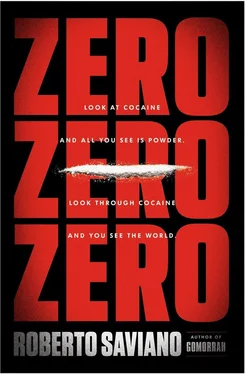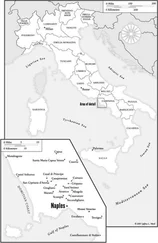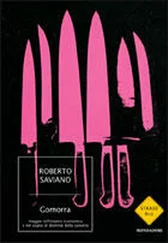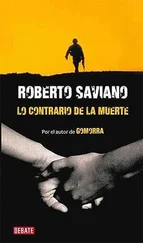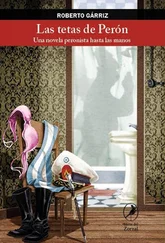Caro Quintero tried to flee. He couldn’t believe that Mexico, his realm, would hand him over to the DEA. He, who had always bought everyone, paid a commander of the Federal Judicial Police of Mexico 60 million pesos for safe passage. He managed to get to Costa Rica. But don’t think you can bring your old life with you when you flee. You flee, that’s it. In other words, you die in some way. But Caro Quintero took someone with him — his girlfriend, Sara Cristina Cosío Vidaurri Martínez. Sara wasn’t a boss. She didn’t know how to live in hiding. It may seem easy to live somewhere far away, to forge a new identity. You don’t think it will really take that much, other than money. Yet to live in hiding is a form of torture that inflicts a psychological pressure few can endure. After months living so far away, Sara couldn’t take it anymore, and she called her mother in Mexico. The police knew she’d call sooner or later and had been monitoring the phone. This was the mistake that allowed the DEA to locate the boss, his house, his new life. They went and got him. Caro Quintero and Don Neto refused to collaborate with the authorities and laid the blame for Kiki’s murder on their boss, El Padrino. All they did was kidnap him, they said. It was probably some sort of agreement they’d made with El Padrino, who had the protection of Mexican politicians and high-ranking officials. But in the four years following Kiki’s death, the American police had been chipping away at all of Félix Gallardo’s protections. To get to El Padrino they had to isolate the entire network that defended him: politicians, judges, police, and journalists. Many of those who had been paid by the Guadalajara clan to protect El Padrino and his associates were arrested or fired. Among the accused was a certain Miguel Aldana Ibarra, the director of INTERPOL in Mexico, a repository of all sorts of information on investigations and cocaine trafficking. He too was in El Padrino’s pay: He would pass information first to the narcos and then to his superiors. El Padrino was arrested on April 8, 1989. A few years later he was transferred to the El Altiplano high security prison, where he is still serving his forty-year sentence.
El Padrino and Ernesto Fonseca Carrillo are behind bars, but Caro Quintero is another matter: On August 9, 2013, he was allowed to breathe the fresh air of freedom again. A federal court in Guadalajara found a “formal” irregularity in Caro Quintero’s trial for the kidnapping, torture, and murder of Kiki Camarena: The federal court that tried him was not authorized to do so because Kiki was a DEA agent, not a diplomatic or consular agent, so Caro Quintero should have been tried in a regular court. Such quibbles were enough to set one of the biggest Mexican bosses free. But he is still wanted for various federal crimes in the United States, and the U.S. Department of State has allocated a $5 million reward for anyone able to provide information leading to his arrest. The Americans want to see him behind bars again, American bars this time.
• • •
The murder of Kiki Camarena and all that ensued represents a turning point in the fight against Mexican drug trafficking. The level of impunity that the cartels enjoyed was revealed: To kidnap a DEA agent in plain daylight, right outside the U.S. consulate, and then torture and kill him far exceeded anything they had done in the past, all they had dared to do up till that moment. Kiki had been remarkably insightful: He had understood before anyone else that the structure had changed, that it had become much more than a band of gangsters and smugglers. He’d understood that they were now battling drug managers. He’d understood that the first step was to break the ties between institutions and traffickers. He’d understood that mass arrests of the small-time henchmen who do the dirty work were pointless if they didn’t behead the bosses, if they didn’t radically alter the dynamics that allowed the bosses to flood the markets with money and grow stronger. Kiki witnessed the birth of this unstoppable criminal bourgeoisie. He was more interested in the flow of money than in stopping the killers or dealers. Kiki had understood what the United States has trouble grasping even today: You have to strike at the head. You have to hit the bosses, the big bosses — the limbs merely carry out orders. He had also understood that the producers were weakening compared with the distributors. It’s a law of economics, and thus also of drug trafficking. The Colombian producers were in crisis, as were the Medellín and Cali cartels, as were the FARC fighter groups, the Revolutionary Armed Forces of Colombia.
Kiki’s death ignited American public opinion about the drug problem in a completely new way. After his body was found, many Americans, starting in Calexico, California, Kiki’s hometown, began wearing red ribbons, a symbol of pain and profanation of flesh. And they asked people to stop doing drugs in the name of the sacrifice Kiki had made in the war against drugs. In California they organized Red Ribbon Week, a campaign that later spread throughout the country. It’s still celebrated every October as part of a drug prevention campaign. And Kiki’s story ended up on TV and film.
Before he was arrested, El Padrino had managed to convince the bosses to give up opium in order to concentrate on cocaine coming from South America on its way to the United States. Not that marijuana and opium poppy cultivation have disappeared from Mexico. They’re still there, and the export business carries on. They’ve become less important, though, supplanted by cocaine and later by ice or methamphetamines. The decisions made during that meeting in Acapulco a few months before El Padrino was arrested helped the organizations grow, but without the guidance and recognized authority of the boss a fierce territorial dispute broke out among those who were still free. By the early 1990s the cartels had started warring among themselves, a war waged far from any media hype, since very few people believed in the existence of drug cartels. But as the conflict gradually became more bloody the protagonists’ names became better known, acquired popularity. They are sharks who, in order to dominate the drug market, which today is worth between $25 billion and $50 billion a year in Mexico alone, are eroding Latin America at its very foundations.
The economic crisis may be destroying democracies, destroying work, destroying hopes, destroying credit, destroying lives. But what the crisis is not destroying, and instead is strengthening, are criminal economies. If you look through the wound of criminal capital, all the vectors and movements appear different. If you ignore the criminal power of the cartels, all the interpretations of the crisis seem based on a misunderstanding. In order to understand it you have to look at this power, stare it in the face, look it right in the eye. It has built the modern world, generated a new cosmos. This was the Big Bang.
It’s not heroin, which turns you into a zombie. And it’s not pot, which mellows you and makes your eyes bloodshot. Coke is a performance-enhancing drug. On coke you can do anything. Before it explodes your heart and turns your brain to mush, before your dick goes soft forever and your stomach starts oozing pus — before all this happens, you’ll work more, fuck more, play more. Coke is the comprehensive answer to the most pressing concern of our day: the absence of limits. On coke, you’ll live more. You’ll network more — the first commandment of modern life. And the more you network, the happier you’ll be, the more fun you’ll have, the more emotions you’ll experience, the more you’ll sell. Whatever it is you sell, you’ll sell more of it. More. Always more. But our bodies don’t run on “more.” At a certain point the excitement has to die down, our bodies have to return to a state of calm. Which is precisely where coke intervenes. It’s very exacting, because it has to make its way to the synaptic juncture — to the exact point where individual cells divide — and inhibit a fundamental mechanism. It’s like when you’re playing tennis and you’ve just hit a winner straight down the line: Time stands still and everything is perfect, peace and strength are perfectly balanced inside you. That sensation of well-being is triggered by a microscopic drop of a neurotransmitter, which lands right in the synaptic juncture of a cell and stimulates it. That cell then infects the one next to it, and so on and so on, until millions of cells are stimulated, an almost instantaneous swarm. Life lights up. You move back to the baseline, and so does your opponent; you’re ready to play the next point, and that feeling of a second ago is now just a distant echo. The neurotransmitter has been reabsorbed, the impulses between one cell and the next have been blocked. This is where coke comes in. It inhibits the reabsorption of neurotransmitters, so your cells are always turned on; it’s like Christmas all year long, lights twinkling 365 days a year. The neurotransmitters coke is most crazy about, the ones it never wants to do without, are dopamine and norepinephrine. The first allows you to be the center of the party, because everything is so much easier now. Easier to talk, to flirt, to be nice, to feel you’re liked. The second, norepinephrine, is sneakier. It amplifies everything around you. A glass breaks? You hear it before everyone else. A window slams? You’re the first to realize it. Someone calls you? You turn even before they’ve finished saying your name. That’s how norepinephrine works. It raises your state of alertness; the world around you fills with threats and dangers, turns hostile; you’re always expecting to be harmed or attacked. Your fear-alarm responses speed up, your reactions become immediate, no filters. This is paranoia; the door is wide open. Cocaine is the body’s fuel. It is life cubed. That is, before it consumes you, destroys you. The extra life that coke seems to have given you, you’ll pay for later, at loan-shark interest rates. But later doesn’t count. It’s all here and now.
Читать дальше
